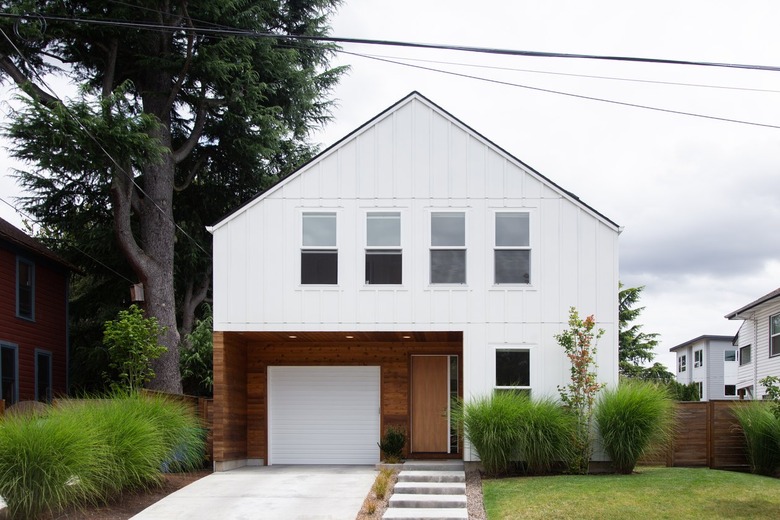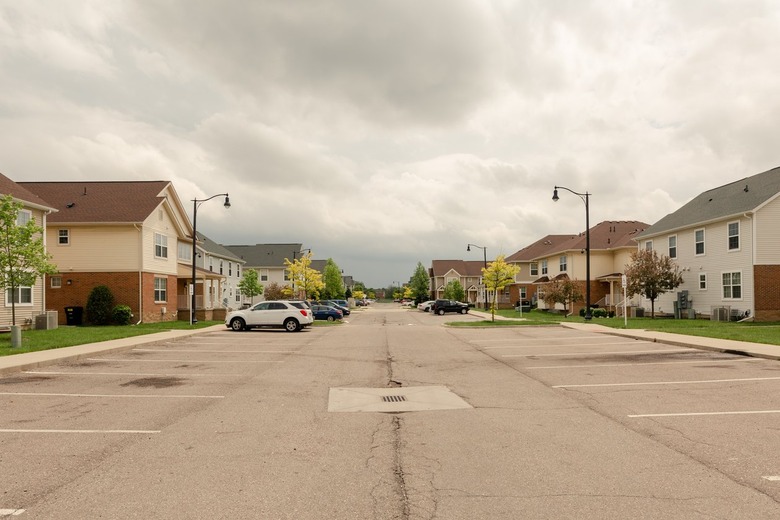How Do Man-Made Disasters Like The East Palestine Train Derailment Affect Housing Markets?
Man-made disasters, like the recent train derailment in East Palestine, Ohio, have shown how quickly an outside force can alter real estate prices in a community. People who own property in and around the town where a Norfolk Southern train carrying toxic materials caused a life-threatening chemical spill have learned firsthand just how quick and long-lasting these declines can be. Unfortunately, with the continuing decline of U.S. infrastructure, they're not the first ones to go through something like this, nor will they be the last.
According to Martin Orefice, CEO of Rent To Own Labs, disasters like these can be especially ruinous for property values. "While a hurricane, earthquake, or tornado will cause a lot of damage, that damage generally gets repaired, people rebuild, and life goes on," he says. "Man-made disasters, especially ones that are chemical or radioactive in nature, not only leave longer-lasting impacts on the soil, air, water, and wildlife around the sites but also leave a stigma for years after any actual hazard is long gone."
Here's what you need to know about how man-made disasters can crash home prices and how long it takes for those values to finally creep back up.
There Have Been Plenty of Man-Made Disasters in the U.S.
There Have Been Plenty of Man-Made Disasters in the U.S.
Man-made disasters, such as explosions, chemical spills, and nuclear accidents, can have significant impacts on local property values, according to Mike Qiu, owner of Good As Sold Home Buyers. "These disasters can cause immediate and long-term damage to the environment and surrounding areas, resulting in significant financial losses for homeowners and businesses."
While incidents like these may sound like they are few and far between, they are actually more common than we'd like to believe. "For example, [a town in]Indiana experienced a devastating explosion in 2019 when a natural gas pipeline ruptured," says Qiu. "The explosion destroyed homes and businesses, caused injuries and fatalities, and resulted in significant property damage."
Community members were left reeling both by the destruction and the financial implications the explosion left in its wake. "In the aftermath of the disaster, property values in the affected area declined, as potential buyers were hesitant to invest in a community that had experienced such a catastrophic event."
Similarly, Qiu says the town of Centralia, Pennsylvania, has been dealing with a decades-long underground coal mine fire that has caused toxic gases and smoke to seep into homes and businesses. "As a result, property values in the area have plummeted, as residents have been forced to abandon their homes and businesses due to the hazardous conditions."
Man-made disasters can have a significant impact on local property values, especially when you're looking at a severe and long-lasting disaster like a nuclear meltdown. "In the case of Three Mile Island, for example, property values in the surrounding area were affected for many years after the nuclear accident occurred in 1979," explains Dustin Singer, owner of Dustin Buys Houses.
There Are Several Reasons Property Values Drop After a Disaster
There Are Several Reasons Property Values Drop After a Disaster
Things like damaged property and dangerous conditions can make a home value drop, but Qiu says that one of the biggest things dragging down the dollar value of homes in these areas is the buying pool. "One of the most significant factors is a decrease in demand," he says, explaining that when there are more homes for sale than there are people looking to buy, you end up with a surplus of inventory, and that will result in lower values. "Other factors that could contribute to decreased property values include an increase in crime rates, declining schools, or the closing of major employers in the area, which could lead to a decrease in population and overall demand."
Man-Made Disasters Sometimes Have a Bigger Impact Than Natural Disasters
Man-Made Disasters Sometimes Have a Bigger Impact Than Natural Disasters
Singer says man-made disasters generally tend to have a more immediate and pronounced impact on local property values compared to natural disasters. "This is because man-made disasters are often viewed as preventable and therefore more likely to cause long-term damage to the community's reputation and desirability as a place to live," he explains.
Natural disasters, like hurricanes, tornadoes, and flooding, are often seen as unpredictable and outside of anyone's control. "Disaster-prone areas, such as regions prone to hurricanes or wildfires, also face challenges in terms of property values," Singer continues. "While the impact of a single disaster may be less severe than a man-made disaster, the cumulative effect of repeated natural disasters can erode property values over time. In these areas, property values may be more closely tied to the perceived risk of future disasters rather than the immediate aftermath of a single event."
In short, property values may be impacted in the short term following a disaster, but the long-term impact will depend on how well the community responds and adapts to the risks associated with living in a disaster-prone area. "Overall, both man-made disasters and disaster-prone areas can have a significant impact on local property values, but the nature and duration of the impact will depend on a variety of factors."
It Can Be Hard Living in a Town Where a Man-Made Disaster Has Occurred
It Can Be Hard Living in a Town Where a Man-Made Disaster Has Occurred
Eric Lee, co-founder of REI Insiders, has firsthand experience with living in a disaster zone. Lee was living in Santa Barbara, California, when an oil spill sent the local real estate market into a spiral. While he says the community didn't immediately feel the pinch, things started heading downhill relatively quickly after the spill took place. "It took several years for the area to recover and for property values to return to pre-spill levels," he says. "The process of recovery was gradual and happened in stages."
As the Environmental Protection Agencies efforts progressed, values finally started to trend upward. "However, it took several years for the values to fully recover," Lee continues.
His tip after going through something like this himself is to stay informed. "In situations like these, it's important to keep a close eye on local news and updates from the authorities involved in the cleanup and recovery efforts," he says. "This can help to give a better idea of the timeline for recovery and what steps are being taken to mitigate the impact of the disaster on property values."
Additionally, it's important for everyone in the area to know what health and safety concerns they'll be facing both after the initial incident and as cleanup progresses. While it can be frustrating to see property values decline, in most cases, they will eventually recover. Your health, on the other hand, may not, so it's important to know exactly what dangers you'll face by remaining in an area that has undergone a man-made disaster.


